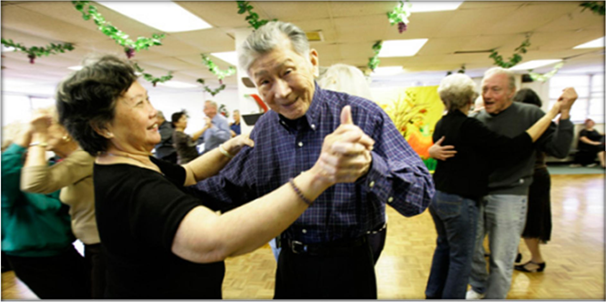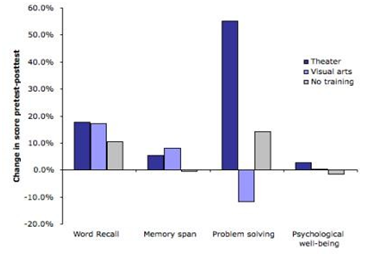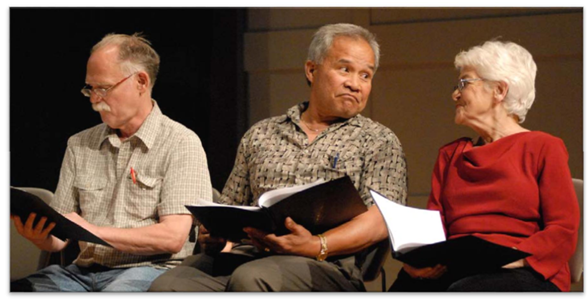INTRODUCTION
As people advance in age, they gain more opportunities to experience significant life events. Whether the occurrences are positive or negative, there are a lot of benefits to sharing these events with others. Not only can they provide entertainment or education for the audience, they may also grant relief to the people telling the story. Many seniors are realizing the benefits of making their stories heard by writing memoirs, The New York Times reported.
Relatives and other readers aren’t the only ones who can benefit when seniors write their memoirs, however. The exercise can be just as enjoyable for writers, and may even support their health. According to PsychCentral, keeping a journal can boost well-being in a number of ways. Perhaps the most obvious is in allowing writers to get their thoughts in order. People who write down the events of their lives are better able to make sense of them and the emotions that result. With that clarity may come a sense of calm. The source reported that writing frequently can help relieve stress and allow people to see things from others’ perspectives, making them more effective at solving conflicts.
Recent research illustrates the importance of social/emotional skills, such as confidence, self- regulation, persistence, and engagement, for promoting seniors’ overall health. Seniors in Play (SIP) is a program that utilizes performing arts to develop senior citizens’ well-being and maintain cognitive health with a focus on a playful and social environment where vitality is key. SIP can be easily replicated and scaled throughout the system, providing network-wide access to vital programing that greatly increases quality of life.
WHAT IS SENIORS IN PLAY?
Playful * Social * Vital

“An examination of the 31 reviewed studies reveals overwhelmingly positive cognitive/affective/quality-of-life outcomes for various participatory art forms.”
– Participatory Arts for Older Adults: A Review of Benefits and Challenges. Tony Noice, PhD, Helga Noice, PhD, and Arthur F. Kramer, PhD. December 2013.
Seniors in Play (SIP) is the curriculum core of Tony Plana, who developed a comprehensive 48 -hour course that guides seniors through an innovative and playful theatrical program, encouraging them to use the dramatic exploration of personal identity in order to develop confidence, communication and expression. This approach works from the inside out, using internal exploration to build external communication skills.
The research -based curriculum draws on best practices theatrical techniques developed by Viola Spolin, Constantin Stanislavski and Augusto Boal to present material in a dynamic way that allows seniors to actively process, assess and connect to their own experiences, focused on a playful environment where seniors are encouraged to socialize. Journaling and dramatic reflections are scaffolded to cultivate the progression from writing reflectively to subjectively descript narratives to genre -specific writing as seniors master dramatic structure through the development of original dramatic works.
HOW DOES SENIORS IN PLAY WORK?
Seniors in Play works through a contextualized learning opportunity that draws on the personal experiences of seniors as well as an experiential dramatic process to strengthen communication skills. The courses bring a playful spontaneity that enlivens the seniors and enriches their days with fun and unexpected interactions with their peers. This holistic educational approach includes an exploration of various dramatic texts (including Shakespeare), reflective journaling, and dramatic writing exercises culminating in the creation and performance of original dramatic works that are culturally responsive and reflect personal identity and experience. Designed primarily for seniors SIP empowers participants with the language and communicative skills necessary to feel connected to themselves and their community.
SIP encourages seniors to think critically, communicate effectively, work collaboratively and embrace their own personal voice. Seniors explore the dramatic process from idea to page to stage while developing the life skills necessary for personal effectiveness and social connectivity. SIP also helps with seniors who are dealing with depression, isolation, and failing cognitive performance, offering a lively program that provides an outlet for socializing and play. Seniors emerge from the program with more confidence in their abilities to concentrate, to socialize, and a greater sense of personal accomplishment and connection to their community.
Each SIP course lasts for 3 months, meeting twice a week for 2 hours each time, totaling a 48- hour program. Transforming Arts & Minds LLC will deliver to Bexar County Precincts 1, 2, 4 three trimesters of Seniors In Play consisting of 3 months each commencing in January 2020 and culminating in September 2020.

HOW DOES SENIORS IN PLAY AFFECT SENIORS?
Dr. Helga Noice, 73, and her husband, Tony Noice, 79, (a theater professor and professional actor), have been conducting research on acting and its cognitive effects since the 1990s. On numerous tests according to the New York Times: “Dr. Noice did before-and-after testing of participants to gauge the effects of the mental effort involved in learning acting. Significant improvements were found in memory, comprehension, creativity and other cognitive skills. Subjects showed a 19 percent increase in immediate word recall (a test of memory), a 37 percent increase in delayed story recall (a comprehension test) and a 12 percent increase in word fluency (a measure of creativity). The Noices later replicated the study in five different retirement homes, using different instructors, with similar findings. The results of this study were published in July in the journal Experimental Aging Research.”
Seen below is a chart created by Drs. Noice, documenting the change in seniors charted through four key measures, pre and post nine 90-minute sessions of theater, visual arts, and no training over the course of a month. According to their research “The theater group improved significantly more compared to the control group in each of the measures (there was much less variance in the psychological well-being scores than in the other tests, so those small gains are significant). For problem solving and well-being, the theater group also improved significantly more than the visual arts group. The theater group also had the lowest drop-out rate of any group: All theater participants attended all 9 sessions, while 8 of the 44 visual arts students dropped out, despite the fact that all participants said they enjoyed the sessions.”

https://scienceblogs.com/cognitivedaily/2009/07/23/is-theater-the-ultimate-brain-1
Theater Communications Group’s article “The Age Advantage” documents Julie Kline and Liza Zapol, “two theatre artists who were placed at the St. Peters Church senior center for two consecutive years, where together they created Seniors and the City: Stories of Our New York, based on life stories in relation to the city and Seniors and the City: Bodies of Knowledge, which centered around stories about health from birth to present (older) age.” From their two years in the center, Kline tells Theater Communications Group that “The seniors in these programs and projects become vital, physically and mentally. It continually amazes me how deeply fulfilling creating and performing a show can be for them. It reminds me that theatre always has that power, regardless of the project or the population.”
https://www.stagebridge.org/s/American-Theatre-The-Age-Advantage.pdf
FUNDING
The costs of this program are built to scale.
ABOUT TONY PLANA
Tony Plana recently starred as Ignacio Suarez, the widowed father to America Ferrera’s Ugly Betty, in ABC’s landmark, groundbreaking hit series for which he received the 2006 Golden Satellite Award from the International Press Academy, an Imagen Award, and an Alma Award. Ugly Betty received the highest ratings and the most critical acclaim of any Latino-based show in the history of television, most notably 11 Emmy nominations and a Golden Globe Award for best comedy.
Previously, he also starred in Showtime’s original series, Resurrection Boulevard, and was nominated for two Alma Awards for best actor. Resurrection Boulevard was the first series to be produced, written, directed and starring Latinos and awarded an Alma Award for the best television series of 2002.
Besides recurring roles on Alpha House, Madam Secretary, Jane the Virgin, Elementary, The Fosters, The Blacklist, Colony, The Affair, One Day at a Time with Rita Moreno and Super Store with America Ferrera, his latest television projects include principal roles in the newly released series Lethal Weapon with Damon Wayans for Fox, Start Up with Martin Freeman for Sony’s Crackle, The Punisher with Jon Bernthal for Netflix, Academy Award winner Paolo Sorrentino’s The Young Pope with Jude Law and Diane Keaton for HBO and highest rated series on cable, the recently premiered Mayans MC for the FX Channel.
As an actor Plana has starred in more than 70 feature films, including JFK, Nixon, Salvador, An Officer and a Gentleman, Lone Star, Three Amigos, Born in East L.A., El Norte, 187, Primal Fear, Romero, One Good Cop, Havana, The Rookie, Silver Strand and Picking Up the Pieces with Woody Allen. He has also appeared in the action thriller Half Past Dead with Steven Segal; The Lost City, with Andy Garcia, Bill Murray, and Dustin Hoffman; and Disney’s highly acclaimed GOAL, The Dream Begins! Recently released Pain & Gain with Mark Wahlberg directed by Michael Bay and Roman J. Israel, Esquire with Denzel Washington directed by Dan Gilroy. Premiering soon will be Lucite Desk: The
Fox Sex Scandal with Charlize Theron and Nicole Kidman, Wasp Network with Penelope Cruz and Edgar Ramirez, and the award-winning independent film, Butterfly Caught.
In 2005 he was honored as Educator of the Year by Loyola Marymount University’s Department of Education. In 2008 he was awarded Loyola High School’s Cahalan Award as a distinguished alumnus and a Lifetime Achievement Award by the Imagen Foundation. In 2009 the HOLA organization honored him with the Raul Julia HOLA Founders Award for excellence. In 2010, Mayor Antonio Villaraigosa selected him as worthy of one of the highest honors bestowed by the City of Los Angeles, The Dream of Los Angeles Award for his contributions to the media arts and education. He is the proud recipient of the 2013 ALMA Lifetime Achievement Award from the National Council of La Raza, the National Association of Latino Independent Producers’ Lifetime Achievement Award for 2016 and the Golden Eagle Lifetime Achievement from the Nosotros Organization.
Tony Plana 562-773-5660
tonyplana@tonyplana.com












